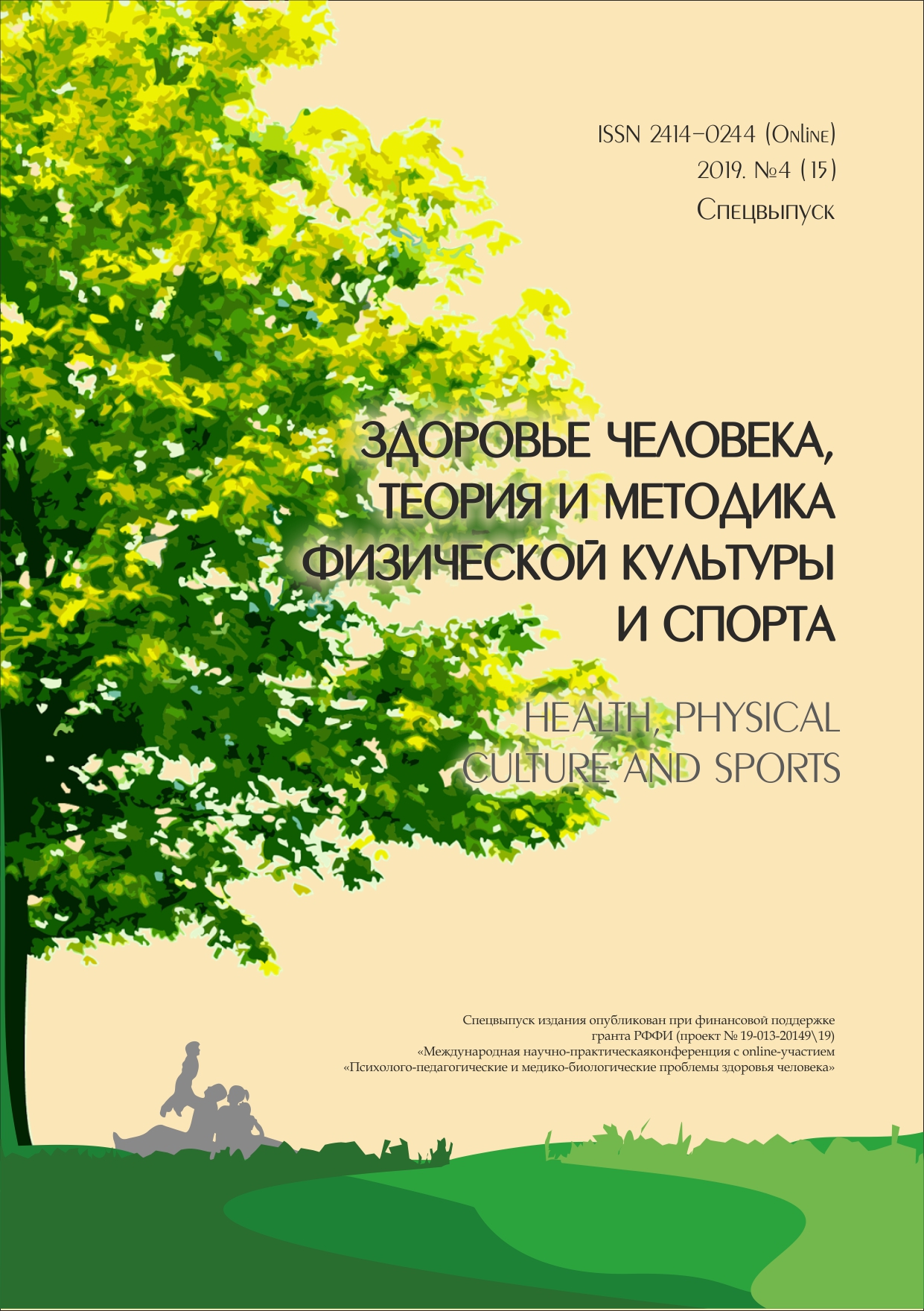INNOVATIVE METHODS OF TEACHING PHYSICAL CULTURE IN THE EDUCATIONAL SYSTEM MANAGEMENT SPECIALISTS
Abstract
e process of physical education of the future of a qualitatively healthy specialist should not be chaotic, one-sided, limited only to “schooling for regular motor activity”. It is necessary to update the professional application of the process of physical education of future managers in ac-cordance with the requirements of life, competitiveness and the requirements of the profession itself.Аt the Department of physical culture of the Academy of Public Administration under the Ae-gis of the President of the Republic of Belarus a search was undertaken for productive approaches to teaching physical education that meet the interests of innovative leaders who successfully imple-ment professional functions and personal potential. e result of this search was a pedagogical ex-periment proposed by students with higher education who receive a second higher education at the Institute of management specialists in absentia.e purpose of the experiment is the formation of the students’ competences that ensure the ef-fective solution of professional and social-personal tasks by means of physical culture and sports ac-tivities.In the experiment, a model of training forms of various courses on personal development was used, which, taking into account the three levels of tasks of professional-applied physical training, was adapted in accordance with the purpose of the experiment. ese trainings allow students in physical culture and sports activities of a playful and competitive type to develop specic abilities and skills that, through positive transference, will facilitate the implementation of professional activities in conditions with similar requirements in character. And also will allow the future leader to over-come possible personal diculties in ensuring his self-actualization in the labor process.ese diculties include the need to work in a team. In addition to having the necessary com-petencies, the success of the professional activity of a manager largely depends on the prevailing mo-tives and socio-psychological characteristics of the individual. e motives for achieving success and avoiding failures, the so-called positive and negative motivation has a signicant impact on a person’s behavior and, consequently, on the eŸectiveness of his activities. Studies have shown that in many cases, an adjustment of motivation is needed. Switching the “avoidance of failures’ motive among those for whom it prevails on the motive of “striving for success’ increases the orientation “towards a joint result with the team” and may aŸect the rest of the core competencies of the leader. Accord-ingly, the potential for analyzing and correcting the motivational prole of students through train-ings with the command character of the assignments is no less signicant.
Downloads
References
Бюджет Республики Беларусь на 2019 год для граждан. URL: http://www.minn.gov.by/upload/bp/budjet/budjet 2019.pdf. Дата доступа: 05.05.2019.
О физической культуре и спорте: Закон Респ. Беларусь от 4 янв. 2014 г. № 125-З // ЭТАЛОН. Законодательство Республики Беларусь / Нац. центр правовой информ. Респ. Беларусь. Минск, 2017.
Котов С. В. Мотивация «на успех» и мотивация «на избегание неудач» в контексте позитивной психологии // Молодой ученый. 2012. № 4. С. 360–362.
Рафикова А. Р. Соревновательная деятельность как специфическая составляющая профессиональной подготовки будущего руководителя // Актуальные проблемы совершенствования физического воспитания в учебных заведениях: сборник научн. статей по матер. Междунар. научн.-практ. конф., Гродно, 6–8 мая 2015 г. / редкол. В. К. Пестис и др. Гродно: ГГАУ, 2015. С. 56–61.
Рафикова А. Р. Дисциплина «Физическая культура» в современной парадигме высшего образования // Современные проблемы физического воспитания и формирования здорового образа жизни студенческой молодежи: материалы Респ. научн.-практ. конф., Минск, 17 мая 2012 г. / редкол.: И. М. Дюмин и др. Минск: Междунар. ун-т «МИТСО». С. 35–38.
Рафикова А. Р. Компетентностный подход к организации процесса физического воспитания студенческой молодежи // Перспективы развития современного студенческого спорта. Итоги выступлений российских спортсменов на Универсиаде-2013 в Казани: матер. Всероссийской научн.-практ. конф., Казань, 12–13 декаб. 2013 г. Казань: Отечество, 2013. С. 187–189.
Рафикова А. Р. Соревновательная деятельность как способ развития эмоционального интеллекта будущих руководителей // Гульні і забавы ў культуры правядзення вольнага часу дзяцей і моладзі: выклікі і перасцярогі: зб.навук.прац / Брэсц. дзерж. ун-т імя А. С. Пушкіна; рэдкал.: Ул. П. Люкевич [і інш.]. Брэст: Альтернатива, 2015. С. 34–39.
Рафикова А. Р. Компетентностно-ориентированная модель валеологической подготовки управленческих кадров // Валеологические проблемы здоровьеформирования подростков, молодежи, населения: сбор. матер. XIII Междунар. научн.-практ. конф. молодых ученых и студ., Екатеринбург, 07 декаб. 2017 г. / ФГАОУ ВО «Рос. гос. проф.-пед. ун-т». Екатеринбург: РГППУ, 2017. С. 159–162.
Физическая культура в подготовке современного руководителя: моногр. / под общ ред. И.. Лосевой. Минск Академия управления при Президенте Республики Беларусь, 2018. 166 с.
Рафикова А. Р. Развитие мотивации к совершенствованию профессионального здоровья управленческих кадров // Психологическое здоровье человека: жизненный ресурс и жизненный потенциал: матер. V Междунар. научн.-практ. конф., Красноярск, 22–23 нояб. 2018 г. / гл. ред. И. О. Логинова. Красноярск: КрасГМУ, 2018. С. 257–261.
Ганчеренок И. И. От формирования компетенций к компетентному управлению // Публичное управление. 2011. № 1. С. 18–29.
An author should not normally publish manuscripts describing essentially the same research in multiple journals or publication venues. Such redundant publication is generally considered to constitute unethical publishing behavior, and if discovered may result in a manuscript under consideration being rejected, or a published article being retracted.
Authors of manuscripts reporting on original research should present an accurate account of the work performed, accompanied by an objective discussion of its significance. Underlying data should be represented accurately in the manuscript. The manuscript should contain sufficient detail and references to permit others to replicate the work. The fabrication of results and the making of fraudulent or knowingly inaccurate statements constitute unethical behavior and may be cause for rejection or retraction of a manuscript or published article.





